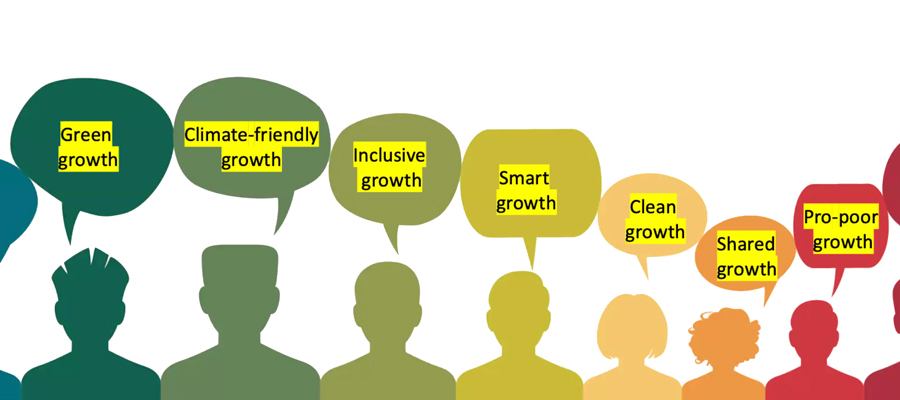Rosenbluth Lecture 2021: Peter Victor, Slower by Design, not Disaster

The Gideon Rosenbluth Memorial Lecture was held virtually in February. The lecture is in honour of Gideon Rosenbluth, who was an esteemed professor of economics at the University of British Columbia and a research associate with the CCPA’s BC Office.
As a young person, Peter Victor looked at the now-iconic, then newly minted image of Earth viewed from space and wondered how human economies relate to the natural environment. He began to question the feasibility and desirability of long-term economic growth, a theme central to his approach to economics.
Peter’s journey took him from the United Kingdom to graduate school at the University of BC (UBC) from 1967 to 1970, where Gideon Rosenbluth was his professor and dissertation advisor. Peter went on to a long career in Canada and abroad, working at the intersection of economic and environmental issues. He is Professor Emeritus at York University and possibly Canada’s leading ecological economist, best known as the author of Managing without Growth: Slower by Design, not Disaster (published in 2008).
Peter discussed the ideas in his book and recounted his own journey towards ecological economics. From Gideon’s class at UBC, Peter learned early on there was nothing just about the outcome of a fully competitive economy. Standard economic analysis holds up the primacy of markets, but introduces the concept of externalities—unintended consequences of market transactions that are viewed largely as problems that can be ignored. The economics of natural resources, in contrast, was more about optimal rates of extraction and was not linked to environmental issues. Peter realized he could unify these strands by taking a critical insight from engineering—that production is a process of transformation of materials—to understand that economies take materials from the biosphere and transform them into both products and wastes.
The economics of natural resources is more about optimal rates of extraction and not linked to environmental issues.
After working many years at the Ministry of the Environment in Ontario, Peter received a call from Gideon in 2001 wanting to begin an updated dialogue on the environment and the economy. That led, in 2002, to a CCPA paper, co-authored by Gideon and Peter, called Saving the Environment: How Canada Can Abolish Poverty and Unemployment Even in a No-Growth Economy. After a couple of academic articles with Gideon that deepened this analysis, Peter was ready to write Managing without Growth.
While many criticize GDP for its shortcomings as an indicator of standard of living, Peter emphasized the philosophy of perpetual growth as being the core problem. Many good ideas for a better society are shot down because of their presumed adverse effect on growth. Yet, the idea that growth might push us past planetary boundaries necessary for a prosperous human civilization is neglected.
Peter reviewed his latest modeling results based on the LowGrow SFC ecological macroeconomic model he created. The model shows two scenarios, a carbon reduction scenario and a deeper sustainable prosperity scenario, and how key outcomes like unemployment, hours worked, household debt and income inequality are affected. He concludes there is little to worry about economically by pursuing a more sustainable pathway.
Many good ideas for a better society are shot down because of their presumed adverse effect on growth.
Drawing on questions from the Rosenbluth Lecture audience, Peter argued that capitalism was not necessarily incompatible with an economy that does not grow. Capitalism would evolve to new constraints we impose upon it through policy. He also advocated for supporting co-ops, worker-owned enterprises and other non-profit forms of organization outside of capitalism.
On climate, Peter cautioned against “net zero” approaches to emissions, noting that annual targets are needed and a pathway to get to zero. Canada has made some modest progress but overall is moving too slow, he said.
Over 700 people attended the Rosenbluth Memorial Lecture zoom event, far more than we would normally host at an in-person lecture. CCPA-BC would like to thank Peter Victor for a timely and thought-provoking talk and the family of Gideon Rosenbluth for their support.
Watch the video of Peter’s lecture.

